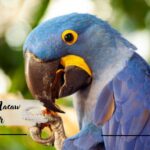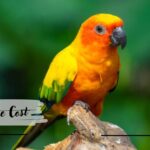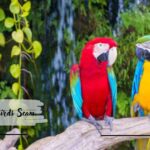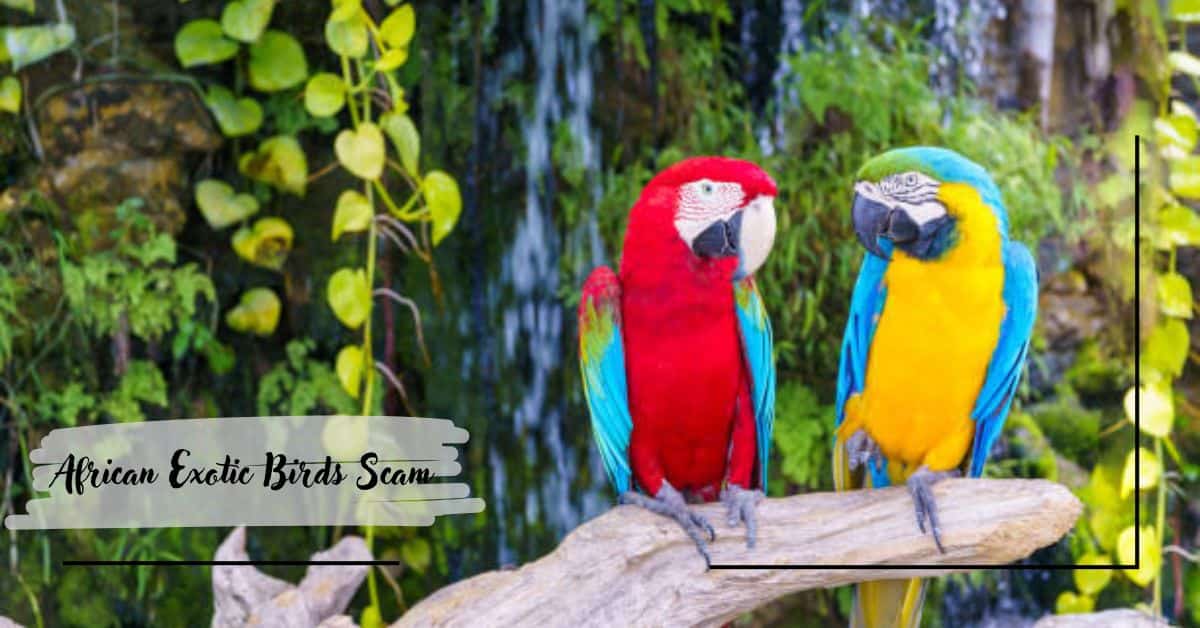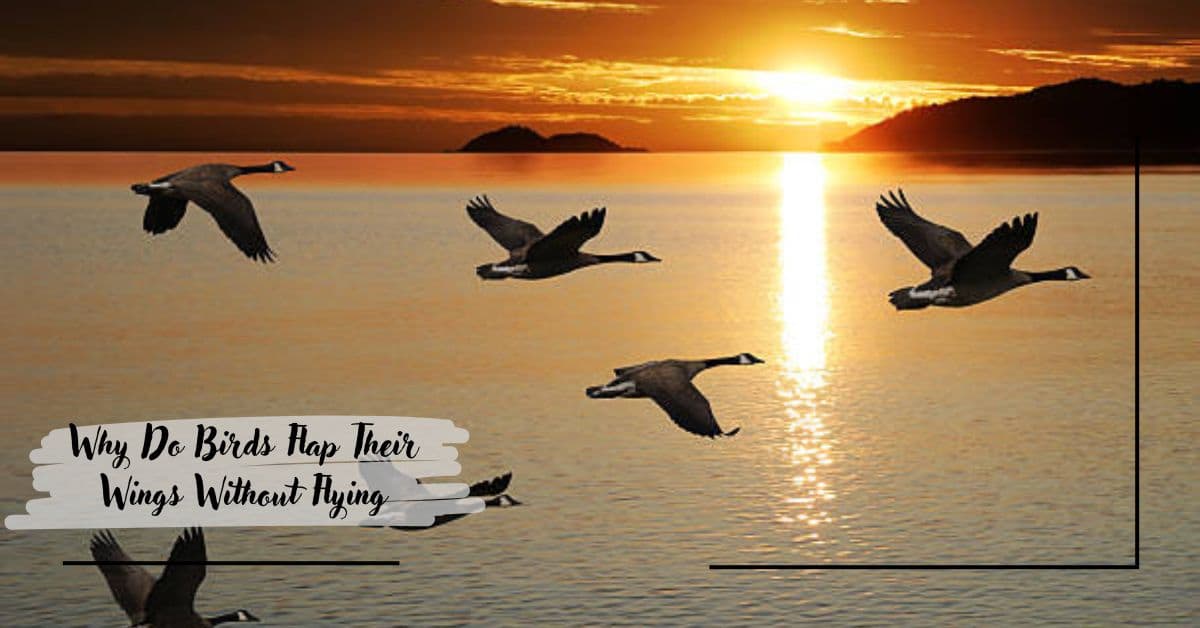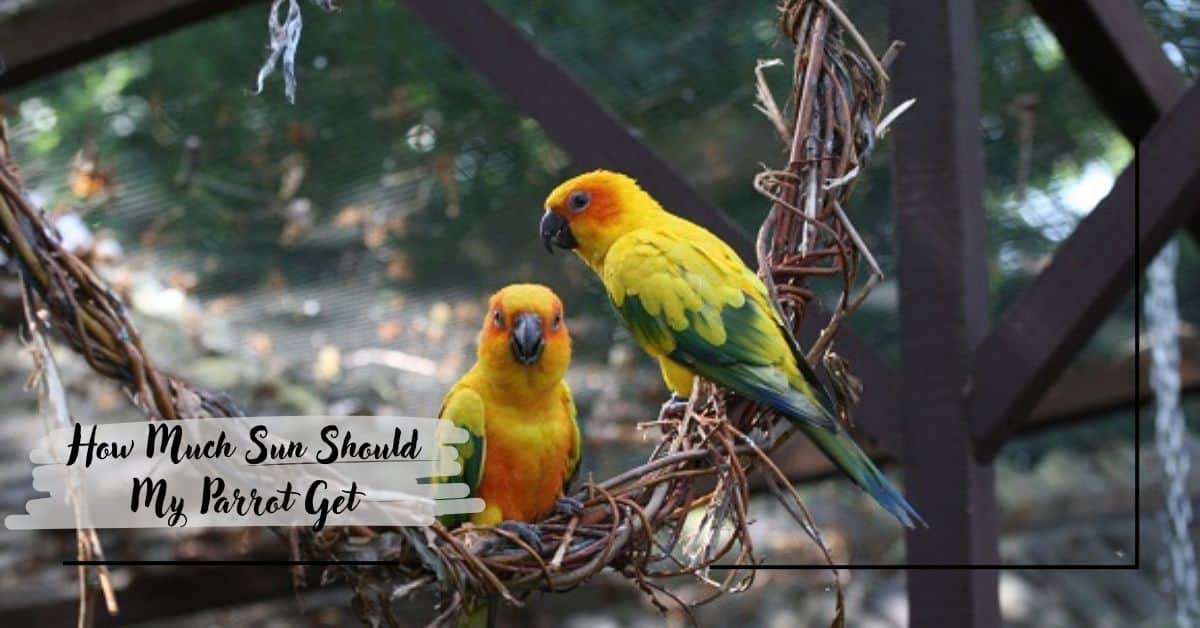Is Coral Tree Safe For Parrots? When I considered adding a coral tree to my parrot’s space, I found out it’s toxic to birds. To keep my parrot safe, I chose not to include it and focused on other bird-friendly plants instead.
The coral tree is not safe for parrots. It contains toxic parts that can harm your bird if ingested. Always choose bird-safe plants to ensure your parrot’s health and safety.
What is a Coral Tree?
A coral tree, often from the genus Erythrina, is a tropical and subtropical plant known for its striking appearance. It features bright, tubular flowers that can be red, orange, or yellow and has broad, attractive foliage. Coral trees are popular in gardens for their aesthetic appeal and are often used in landscaping due to their vivid colors and ability to attract pollinators like bees and hummingbirds.
Key Features:
- Flowers: Tubular and showy, often in shades of red or orange.
- Leaves: Broad and sometimes feathery.
- Size: Can range from small shrubs to large trees, depending on the species.
Are Coral Trees Safe for Parrots?
Coral trees are not considered safe for parrots. Some species of coral trees contain compounds that are toxic to birds. The seeds and, in some cases, other parts of the tree can pose a risk if ingested.
Toxicity Symptoms:
If a parrot consumes parts of a coral tree, it may exhibit signs such as:
- Lethargy
- Vomiting or diarrhea
- Loss of appetite
- General distress
Recommendations:
- Avoid Planting: Do not plant coral trees in areas where parrots or other pets have access.
- Immediate Action: If you suspect your parrot has ingested coral tree parts, consult an avian veterinarian immediately for guidance and treatment.
Safe (un-toxic) and Unsafe (Toxic) Plants For the Birds:
Disclaimer: This table provides general information on toxic and non-toxic plants for Birds. It is essential to consult with a veterinarian for specific advice and guidance regarding your bird’s diet and environment to ensure their health and safety.
Toxic Plants For The Birds:
| Plant | Parts Toxic |
|---|---|
| Acokanthera | All parts toxic, except ripe fruit |
| Amaryllis | Entire plant |
| Angel’s Trumpet | Leaves, seeds, and flowers |
| Apricot | Pits, leaves, and bark |
| Apple | Seeds, leaves, and bark |
| Avocado | Unripe fruit and stems |
| Azalea | Entire plant |
| Balsam Pear, Bitter Melon | Entire plant |
| Baneberry | Berries and roots |
| Belladonna | Entire plant |
| Bird of Paradise | Seed pods and flowers |
| Bittersweet | Entire plant |
| Black Locust | Entire plant |
| Boxwood | Entire plant |
| Bracken Fern | Entire plant |
| Buckthorn | Berries and leaves |
| Burdock | Entire plant |
| Buttercup | Entire plant |
| Caladium | Entire plant |
| Calla Lily | Entire plant |
| Catclaw Acacia | Twigs and leaves |
| Caster Bean | Entire plant |
| Cherry | Pits, leaves, and bark |
| Chinaberry | Berries and leaves |
| Clematis | Entire plant |
| Coral Plant | Entire plant |
| Crocus | Entire plant |
| Cycad or Sago Cycas | Entire plant |
| Daffodil | Entire plant |
| Daphne | Entire plant |
| Death Camas | Entire plant |
| Delphinium | Entire plant |
| Devil’s Ivy | Entire plant |
| Dieffenbachia (dumb cane) | Entire plant |
| Eggplant | Unripe/overripe fruit, leaves |
| Elderberry | Roots, leaves, stems, bark |
| Elephant’s Ears or Taro | Entire plant |
| Euonymus | Fruit, bark, and leaves |
| European Pennyroyal | Entire plant |
| Figs | Entire plant |
| Four o’clock | Entire plant |
| Foxglove | Entire plant |
| Heliotrope | Entire plant |
| Henbane | Entire plant |
| Holly | Leaves and berries |
| Horse Chestnut | Entire plant |
| Horse Nettle | Entire plant |
| Hyacinth | Entire plant |
| Hydrangea | Entire plant |
| Iris | Entire plant |
| Ivy (Boston, English & some others) | Entire plant |
| Jack-in-the-Pulpit | Entire plant |
| Jerusalem Cherry | Berries and leaves |
| Jessamine Yellow | Entire plant |
| Jimsonweed | Leaves, seeds, and flowers |
| Jonquil | Entire plant |
| Juniper | Berries and leaves |
| Kalanchoe | Entire plant |
| Lantana | Entire plant |
| Larkspur | Entire plant |
| Laurel | Entire plant |
| Lily-of-the-Valley | Entire plant |
| Lobelia | Entire plant |
| Locoweed | Entire plant |
| Lupine | Entire plant |
| Marijuana | Entire plant |
| Milkweed | Entire plant |
| Mistletoe | Entire plant |
| Moonseed | Entire plant |
| Monkshood | Entire plant |
| Morning Glory | Seeds |
| Mushrooms | Entire plant |
| Narcissus | Entire plant |
| Oak | Leaves and bark |
| Oleander | Entire plant |
| Peach | Leaves, pit, and bark |
| Pear | Leaves, seeds, and bark |
| Peony | Entire plant |
| Periwinkle | Entire plant |
| Peyote | Entire plant |
| Philodendron | Entire plant |
| Pigweed | Entire plant |
| Plum | Leaves, pit, and bark |
| Poison Hemlock | Entire plant |
| Poison Ivy | Entire plant |
| Poison Oak | Entire plant |
| Poison Sumac | Entire plant |
| Poinsettia | Entire plant |
| Poppy | Entire plant |
| Pokeweed | Entire plant |
| Potato | Sprouts, leaves, berries, green tubers |
| Pothos | Entire plant |
| Primrose | Entire plant |
| Ragwort | Entire plant |
| Red Maple | Entire plant |
| Rhododendron | Entire plant |
| Rhubarb | Leaves |
| Rosary Pea | Entire plant |
| Sage | Entire plant |
| Shamrock Plant | Entire plant |
| Skunk Cabbage | Entire plant |
| Snowdrop | Entire plant |
| Sorrel | Entire plant |
| Spurges | Entire plant |
| Star of Bethlehem | Entire plant |
| Sweet Pea | Entire plant |
| Tobacco | Entire plant |
| Tomato | Stems and leaves |
| Tulip | Entire plant |
| Virginia Creeper | Entire plant |
| Vetches | Entire plant |
| Water Hemlock | Entire plant |
| Waxberry | Entire plant |
| Wisteria | Entire plant |
| Yew | Entire plant |
Non-Toxic Plants For The Birds:
| Plant |
|---|
| Abelia |
| Acacia (some species) |
| African Daisy |
| African Violet |
| Aluminum Plant |
| Aloe (flesh only) |
| Aralia |
| Arbutus |
| Areca, Butterfly Cane |
| Ash |
| Asparagus Fern |
| Aspen |
| Aspidistra |
| Baby’s Tears |
| Baby’s Breath |
| Bachelor Buttons |
| Barberry |
| Beech |
| Begonia |
| Birch |
| Bird’s Nest Fern |
| Blood Leaf Plant |
| Boston Fern |
| Bougainvillea |
| Brake, Ribbon, Dish |
| Bromeliads |
| California Holly |
| Calamint |
| Calendula |
| Camellia |
| Chamomile |
| Chickweed |
| Chicory |
| Cissus Kangaroo Vines |
| Claw Cactus |
| Coffee Tree (coffee is toxic!) |
| Coleus |
| Comfrey |
| Corn Plant |
| Cottonwood |
| Crabapple |
| Creeping Jenny |
| Croton (house variety) |
| Dahlia |
| Dandelion |
| Date |
| Daylily |
| Dill |
| Dogwood |
| Donkey Tail |
| Dracaena |
| Dragon Tree |
| Easter Cactus |
| Elderberry (cooked ripe fruit only) |
| Elm |
| European Fan |
| Fir |
| Gold Dust Dracaena |
| Echeveria |
| Elephant Foot Tree |
| Eucalyptus |
| Eugenia |
| Gardenia |
| Garlic |
| Gloxinia |
| Grape Ivy |
| Grape Vine |
| Hens and Chicks |
| Hibiscus |
| Honeysuckle |
| Hoya |
| Impatiens |
| Indian Hawthorne |
| Jade Plant |
| Larch |
| Lemon Balm |
| Lilac |
| Lily (Easter or Tiger) |
| Magnolia |
| Marigold |
| Maidenhair Fern |
| Manzanita |
| Mayapple (fruit only) |
| Mock Orange |
| Monkey Plant |
| Moses-in-the-Cradle |
| Mother-In-Law’s-Tongue |
| Nandina |
| Nasturtium |
| Natal Plum |
| Nerve Plant |
| Norfolk Island Pine |
| Parsley |
| Passionflower |
| Peppermint |
| Peperomia |
| Petunia |
| Pony Tail Palm |
| Popular |
| Prayer Plant |
| Purple Passion, Purple Velvet |
| Pyracantha |
| Raphiolepsis |
| Rose |
| Rubber Plant |
| Russian Olive |
| Schefflera |
| Sensitive Plant |
| Spearmint |
| Spider Plant |
| Spruce |
| Squirrel’s Foot Fern |
| Staghorn, Elk’s Horn |
| Star Jasmine |
| String of Beads |
| Swedish Ivy |
| Sword Fern |
| Thistle |
| Ti Plant |
| Violet |
| Wandering Jew |
| Willow |
| Yucca |
| Zebra Plant |
Frequently Asked Questions:
Can parrots eat fruit from non-toxic plants?
Yes, parrots can generally eat fruit from non-toxic plants. Always ensure the fruit is fresh and free from pesticides or harmful chemicals.
How can I tell if a plant is toxic to my parrot?
Check the plant’s name against a reliable list of toxic and non-toxic plants for parrots. If you’re unsure, consult with a veterinarian for confirmation.
Are there any common household plants that are safe for parrots?
Yes, many common household plants like spider plants, Boston ferns, and African violets are safe for parrots. Be sure to verify each plant’s safety before introducing it to your bird’s environment.
What should I do if my parrot eats a toxic plant?
If your parrot ingests a toxic plant, contact a veterinarian immediately. Provide details about the plant and how much was consumed for accurate treatment.
Can I grow my own safe plants for my parrot?
Yes, you can grow safe plants for your parrot, such as basil, parsley, and dandelion greens. Make sure to use organic soil and avoid chemical pesticides.
To Sum Up:
Ensuring your parrot’s safety involves knowing which plants are toxic and which are safe. By choosing non-toxic plants and avoiding harmful ones, you can create a healthy and enjoyable environment for your feathered friend. Always consult with a vet if you’re unsure about a plant’s safety.


